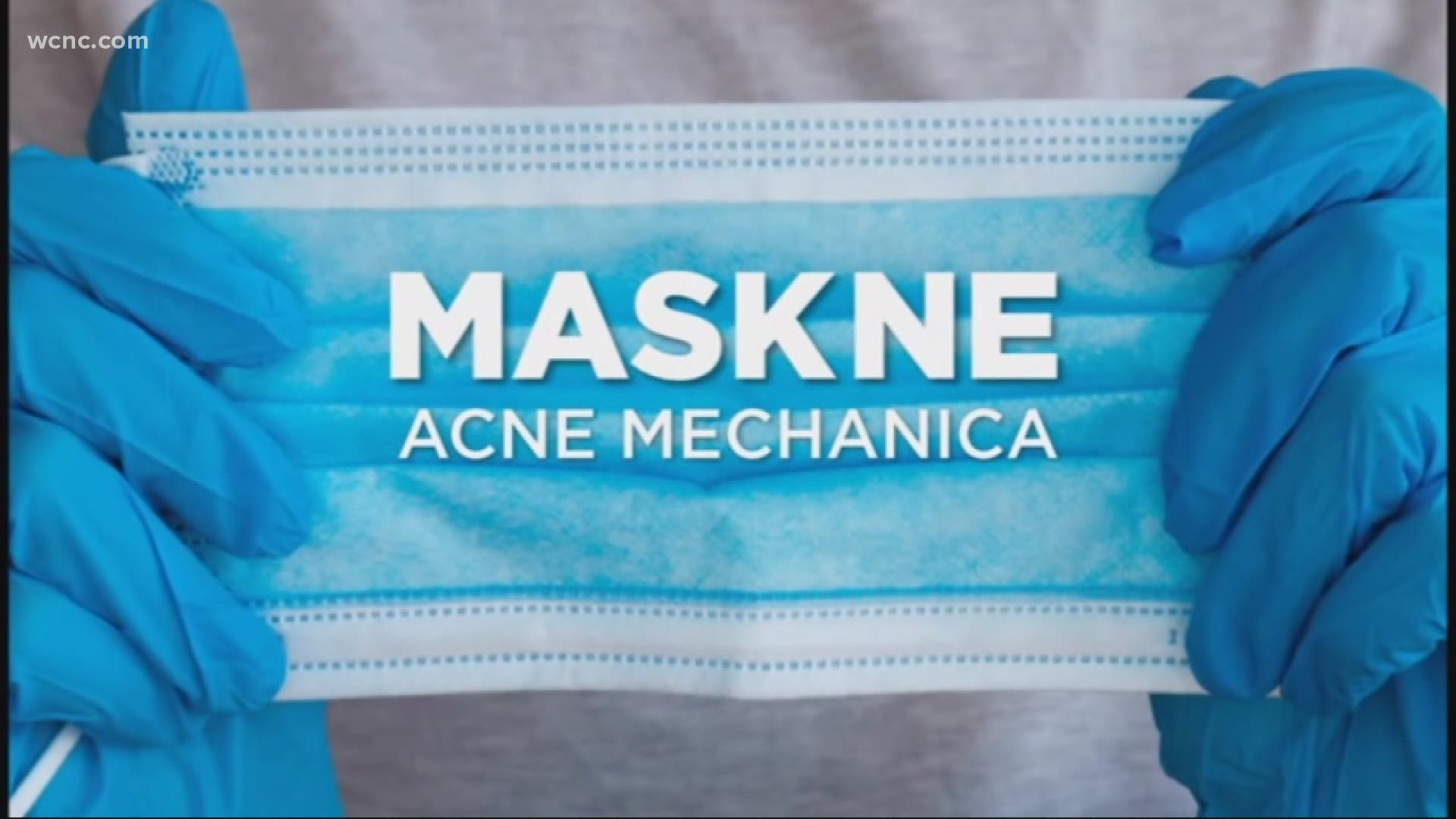CHARLOTTE, N.C. — Your skin is sensitive, and acne can be hard to deal with, especially during your teenage years. Now, with more kids and adults getting back to in-person learning and work, our skin is taking another hit while we wear our masks all day, every day.
Dr. Alyssa Daniel, a dermatologist with Novant Health, said there's been a recent spike in patients dealing with acne related to their masks. It's called "maskne," and it's caused partially because we haven't had to wear masks as often at home, plus the general stress of the COVID-19 pandemic.
The warm weather of spring and summer will only make things worse.
"The heat, humidity and extra moisture that's being trapped under those masks are causing people to have breakouts," Daniel said.
For teens who already struggle to keep their skin clear, wearing the same mask all day at school will work against their efforts. Daniel has a daughter who's back in school and wearing a mask daily. She's sharing some of her tips with everyone so they can try to reduce their breakouts and keep their skin healthy.
“My daughter has been back in full-time learning since right after Christmas, and I pack three masks for her throughout the day and at a minimum, she switches it out for a new one at lunchtime," Daniel said.
Here are some other tips that can help you and your kids fight "maskne":
- Don't wear makeup underneath your mask
- Wash your face every morning and night
- Take your mask off when you're alone and use a cleansing pad to clean your face when you remove it
- Switch it out for a fresh mask periodically
- Choose the mask that best suits your skin
According to Dr. Daniel, there is a big debate over disposable versus cloth masks. Both can be good for certain scenarios and sky types.
If you wear a mask all day, disposable masks are great so you can use a fresh one multiple times a day.
"Cloth masks that you can wash at home with your fragrance-free detergent can also be crucial for people who have the sensitive skin component," Daniel said.
Ultimately, every person is different and you have to figure out what works best for your situation.
If none of the tips mentioned are helping you prevent "maskne", talk to your doctor or dermatologist. There are some topical prescription medications that can be very helpful.

